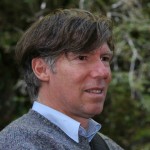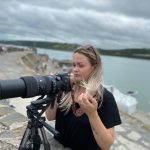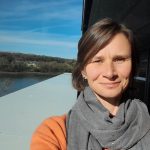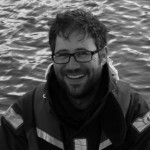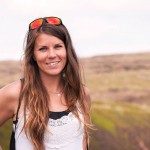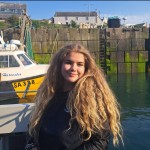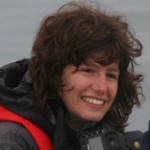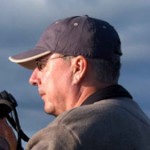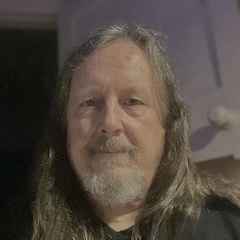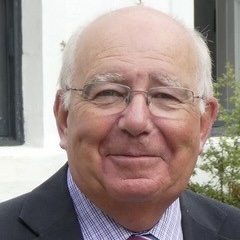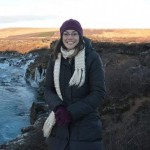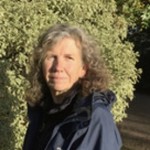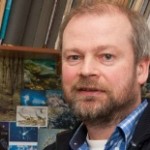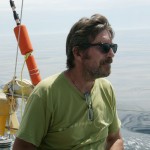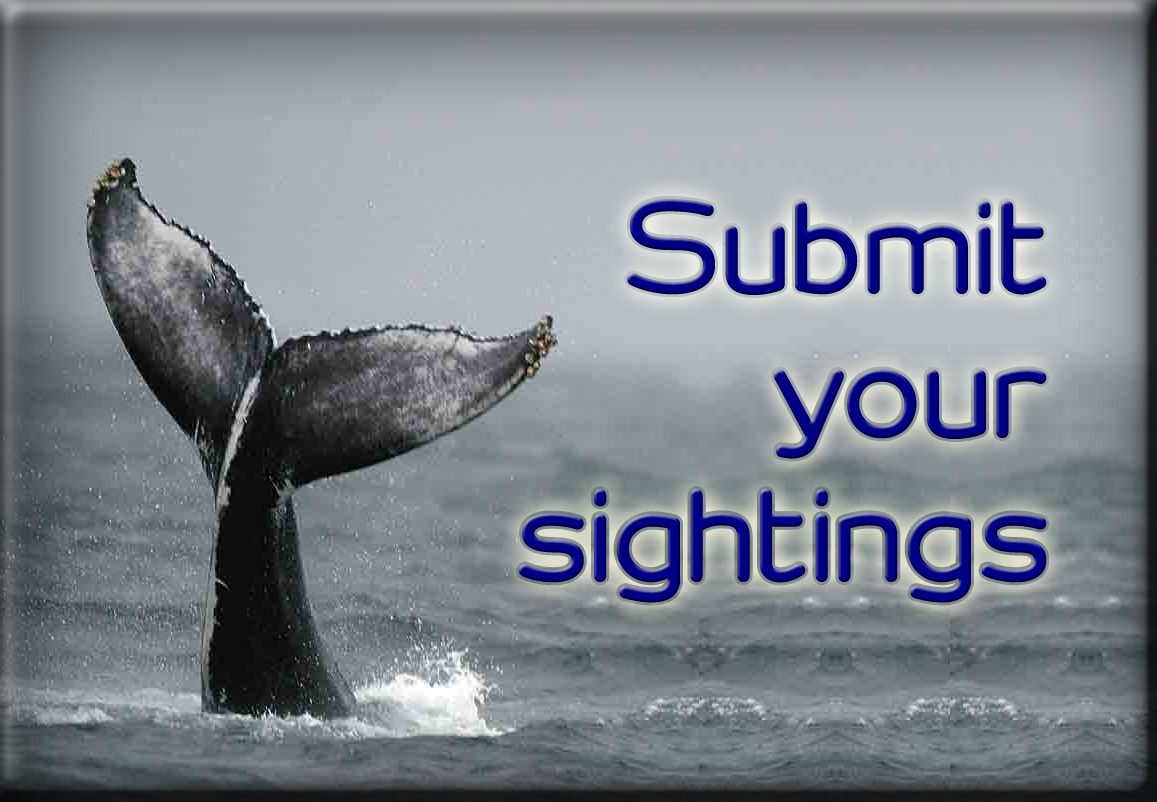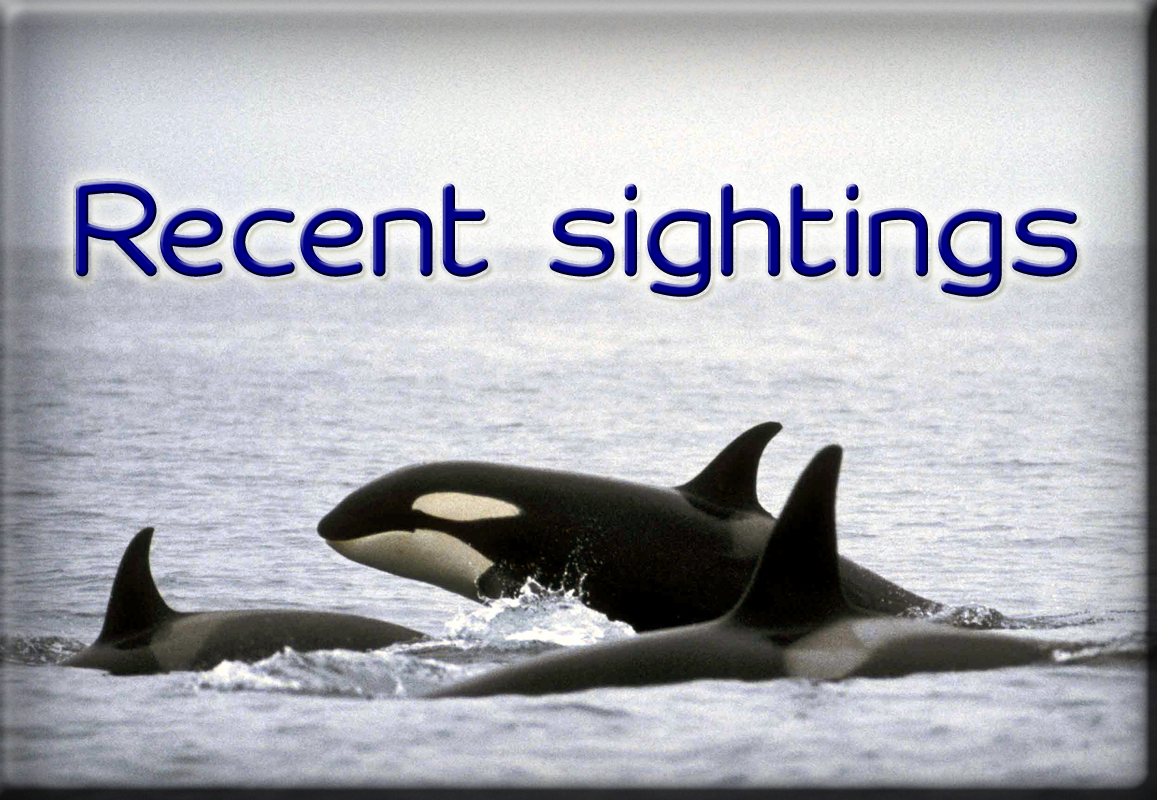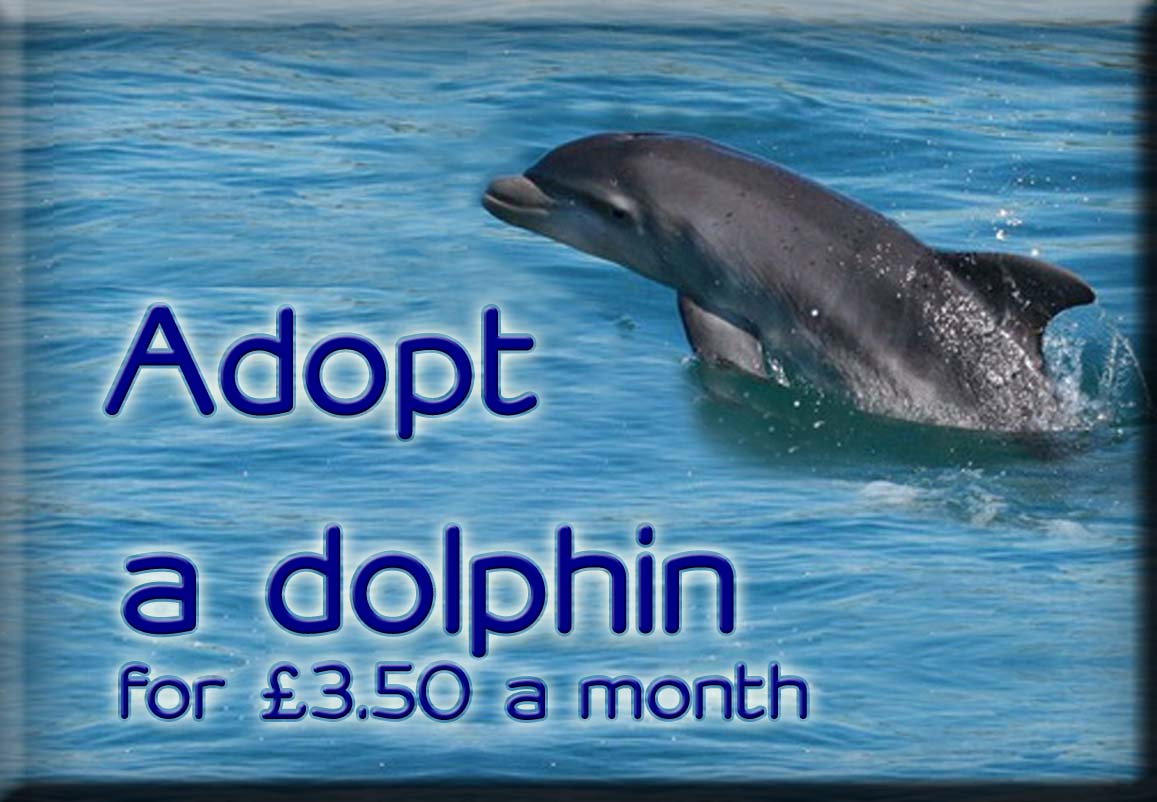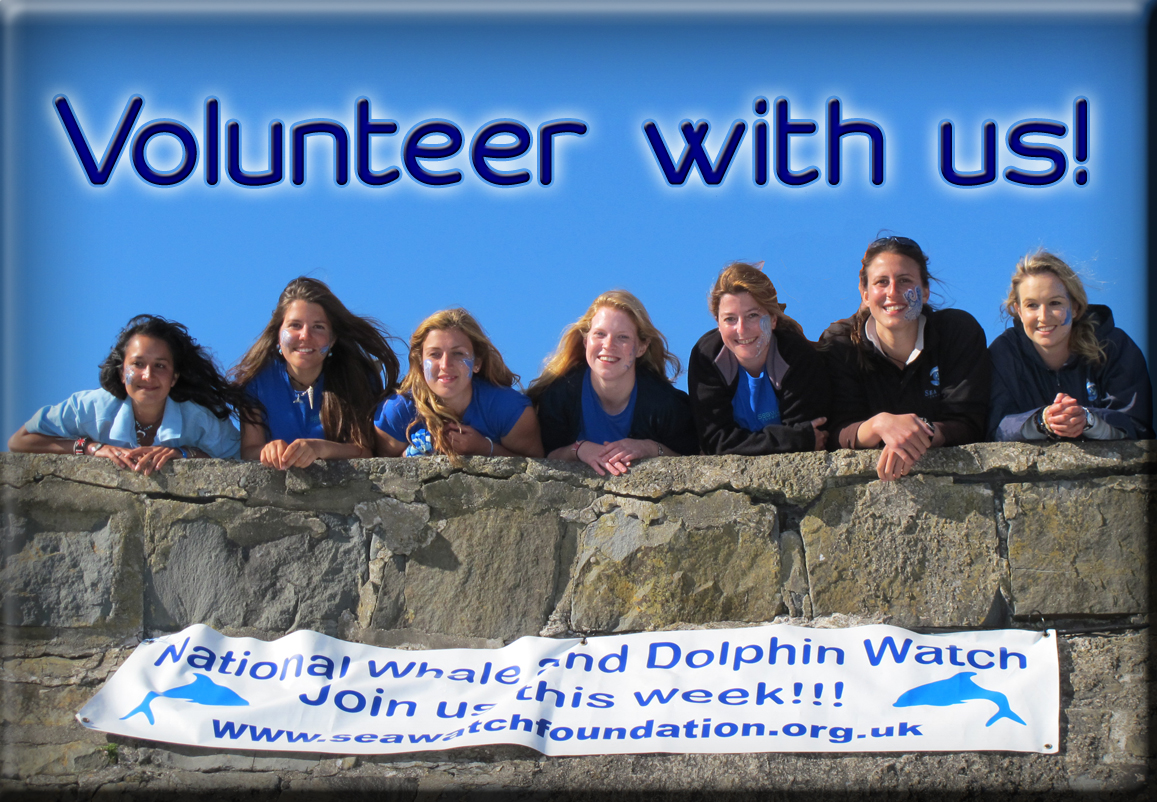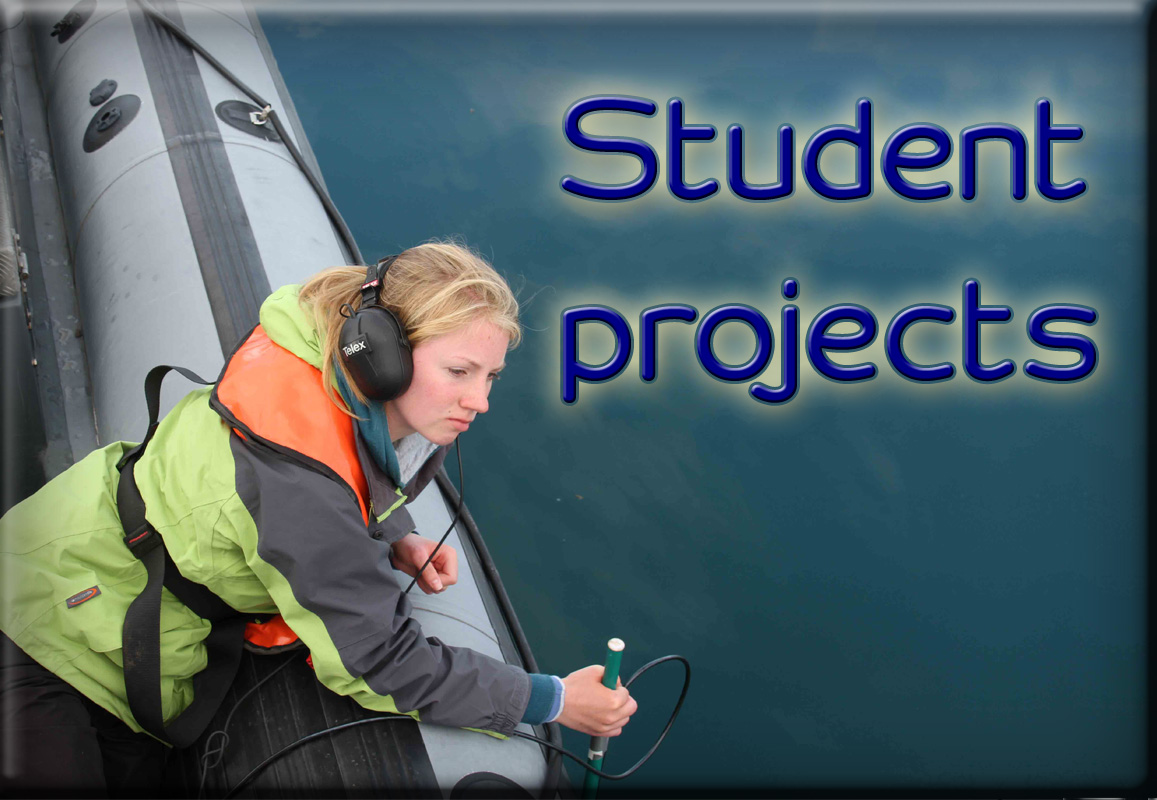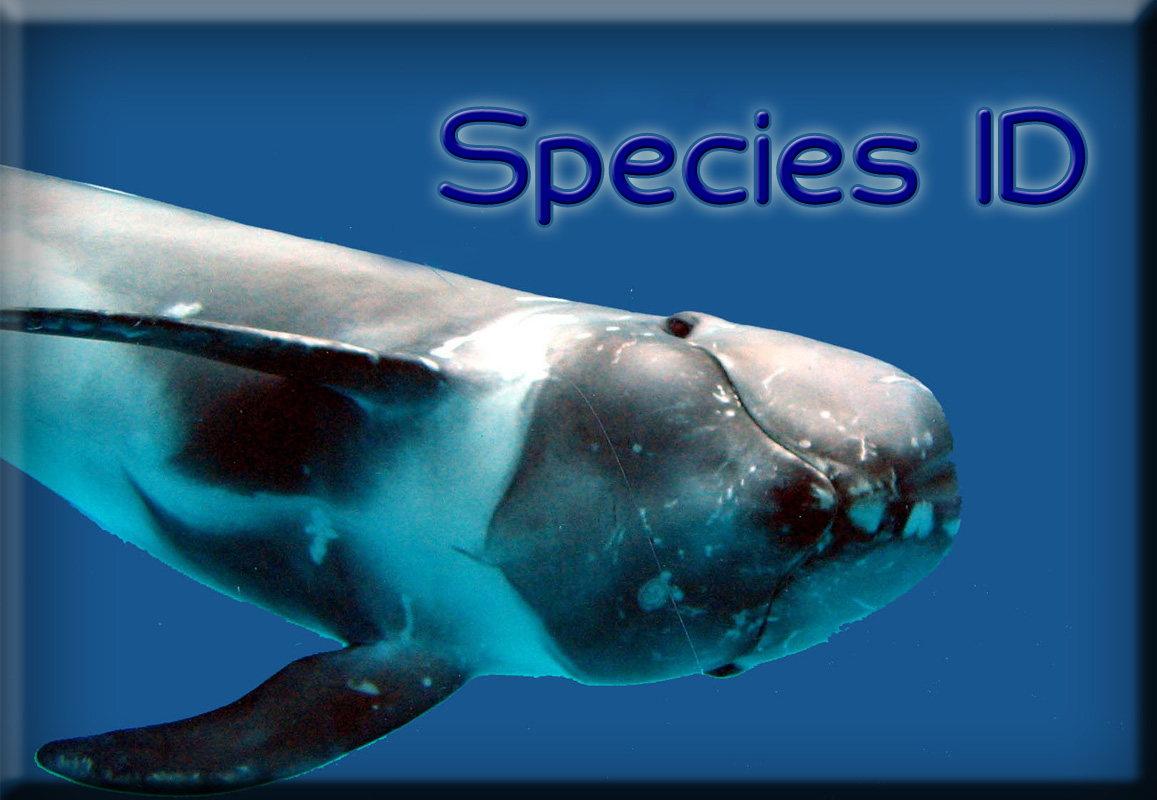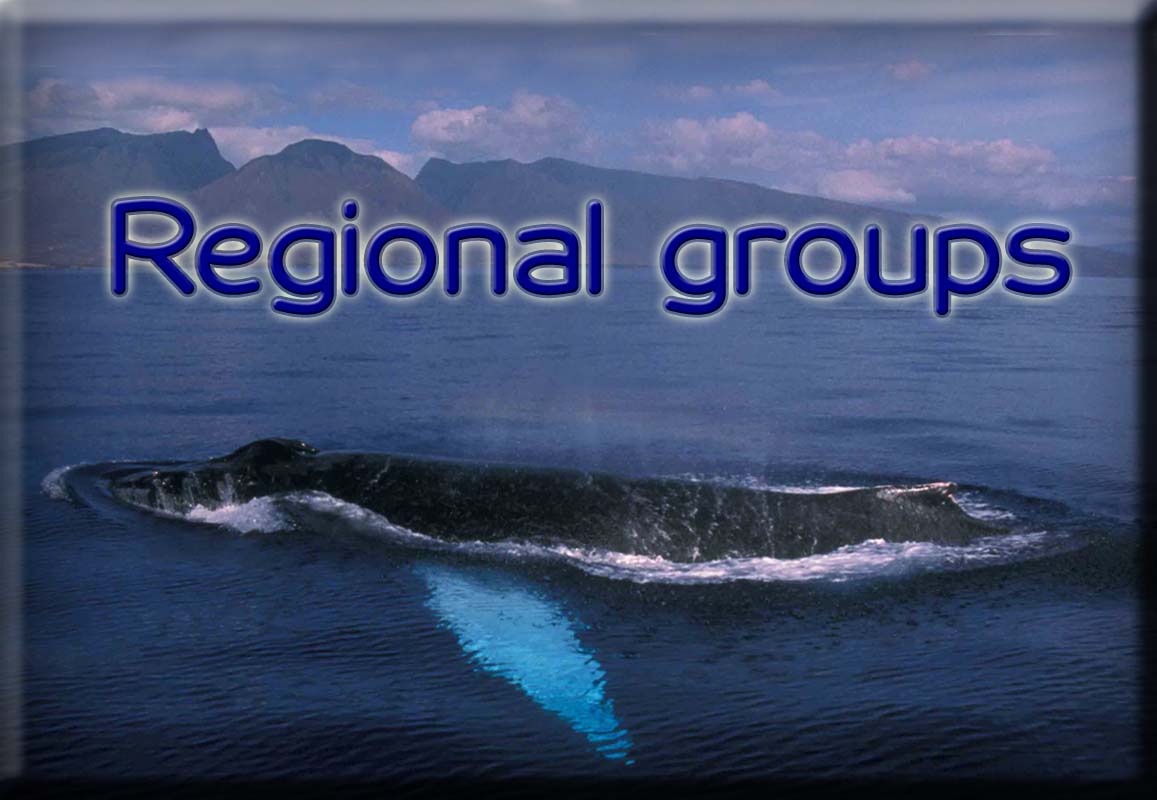Director – Professor Peter Evans established Sea Watch Foundation in 1991 and is the Charity’s Director. He has worked on cetacean research for 40 years and oversees the UK national cetacean monitoring scheme. He was founding Secretary, and later Chairman of the European Cetacean Society, as well as Editor for 21 years. He is a Trustee of the Hebridean Whale and Dolphin Trust, Co-Chair of the ICES Working Group on Marine Mammal Ecology (WGMME) and member of the Working Group on Bycatch of Protected Species (WGBYC), Co-Chair of the ASCOBANS-ACCOBAMS Bycatch Working Group, and Chairs the ASCOBANS Harbour Porpoise North Sea Conservation Plan. He has provided advice to UNEP, OSPAR, the European Commission, UK government and various NGO’s on cetacean matters. In 2009, he received an award for achievement in conservation education & outreach from UNEP/ASCOBANS, and in 2012 the European Cetacean Society’s Conservation Award. Peter’s field research concentrates upon ecological, behavioural and conservation biology studies of cetaceans in the UK, particularly harbour porpoises, bottlenose dolphins, Risso’s dolphins, and minke whales. He also studies the effects of human disturbance upon cetaceans. He has worked extensively on seabirds in Britain, Ireland and the Arctic and was former Secretary of the Seabird Group and editor of its journal, ‘Seabird’. He has written and/or edited 12 books and >200 scientific publications and is Honorary Professor at the School of Ocean Sciences, University of Bangor.
Communications and Outreach Officer – Claudia Afeltra first started working with the Sea Watch Foundation in 2019 as the Research Assistant and Intern Co-ordinator. She returned for a second season in 2021 after spending lockdown 2020 in New Quay carrying out voluntary work for the Sea Watch Foundation, including leading line transect surveys in North Wales. During this time she worked on a photo-identification project in association with and funded by the People’s Trust for Endangered Species. Claudia took on the role of Sightings Officer in 2022, where she managed a national network of citizen scientists. Claudia found a passion for Scientific Outreach and has since taken on the role of Communications and Outreach Officer. Claudia has extensive experience working with non governmental organisations and project management, having run a mangrove project in Belize and heading the Academic Outreach Department for the Society of Environmental Exploration.
SW Anglesey Project Manager – Jenny Bond joined Sea Watch Foundation in April 2023, having worked as a research assistant at Bangor University since 2013 establishing ecology-focused research and development projects with partners in the renewable energy sector. In the last year Jenny has been leading monthly line transect surveys within the Morlais demonstration zone, Anglesey, coordinating observational and acoustic data collection on seabird and marine mammal distributions. The new SW Anglesey & Caernarfon Bay Marine Management Project aims to bring together existing data on the habitats and species of the area, as well as gathering additional data to better understand not only the top predators but the fish and seabed communities there.
Analyst – Frazer Coomber joined Sea Watch Foundation in August 2024 as an analyst for the EU LIFE CIBBRiNA project, a project which aims to minimise bycatch – the incidental capture of animals in fisheries – of endangered, threatened, and protected species across UK and European waters. Frazer’s background is in the collection, analysis and mapping of cetacean survey and sighting data with an interest in relating these to impacts from human activities. Previously Frazer used this experience to investigate the risk of shipping to Whales in the Mediterranean for his PhD and risk of bycatch in Welsh waters at his previous position as a post-doctoral researcher at Bangor University. For his role Frazer’s aim is to work on bycatch risk mapping identifying areas of spatial overlap between cetaceans and fishing activities
Sightings Officer – Simone Evans started working as Sea Watch’s Sightings Officer in April 2023. She was the Research Assistant on the Cardigan Bay Monitoring Project for The Sea Watch Foundation in 2018, after which she took on the role of Data Officer. She studied in South Africa where she worked as a Veterinary Assistant and volunteered at the Two Oceans Aquarium. She gained further knowledge and experience as a field assistant on The Wild Coast Project in South Africa, working with cetaceans, collecting tissue samples, and doing photo ID; worked on the Namibian Dolphin Project; worked in Madagascar as a Marine Mammal Observer and Passive Acoustic Monitor on survey vessels; and three years as a Wildlife Field Guide in Wales; she also sailed with BOAZ for its maiden voyage for Plastic Pollution awareness and been a delegate for them at the African Marine Waste Conference in 2017. She’s been working as a freelance Data Analyst/Business Intelligence Developer for various companies over the last 11 years.
Adopt a Dolphin Administrator – Kirsten Hintner works with Sea Watch Foundation as the ‘Adopt a Dolphin’ administrator and is involved in film making and producing. She is based in Buckinghamshire and trained at the London College of Communication. She gained wildlife filming experience at the BBC’s Natural History Unit before starting work at the Open University, producing course material for distance teaching. Kirsten has experience in all aspects of filmmaking, including operating cameras, recording and editing audio, vision mixing, voice-over and many other techniques. She became a freelance worker in 2000 with her own company, ‘Worldimg’, and has since worked for a variety of organisations, including the United Nations, BBC, NIACE, the Open University, the Community Channel and many charity organizations, including Fauna & Flora International, National Phobics Society, Barnardos and Sea Watch Foundation. Kirsten produces short films, documentaries & video journalism pieces for internet use, and other media for marketing, education, broadcast and fundraising purposes. She has been involved in community film-making projects and has worked with children, people with disabilities and isolated communities. www.kirstenhintner.co.uk
SW Anglesey Outreach Officer – Elan Jones joined Sea Watch in June 2023 as Research & Outreach Assistant for the ‘Er Llesiant ein Môr’ project on Anglesey. Here she learned many valuable survey skills, photo ID procedures, as well as taking part and planning many outreach events as part of the internship. The new SW Anglesey & Caernarfon Bay Marine Management Project aims to bring together existing data on the habitats and species of the area, as well as gathering additional data to better understand not only the top predators but the fish and seabed communities there. She has since returned to the Anglesey project as Outreach Officer, with a focus on public events and educational visits, delivering all aspects bilingually. She is extremely passionate about promoting the use of the Welsh language in marine science. Elan’s role allows the project to focus on outreach activities and events which is a big part of the project.
Monitoring Officer – Katrin Lohrengel started work as Sea Watch’s Monitoring Officer in April 2015. She has been working with the Sea Watch Foundation since 2011; first as a Research Assistant on the Cardigan Bay Monitoring project during 2011 and then as a Regional Coordinator for North-west England. Katrin was appointed as our Wales Development Officer in September 2013 and worked on the Welsh Sea Watchers project until taking over as Monitoring Officer. Katrin has further experience working with cetaceans at the Sarasota Dolphin Research Program in Florida and participation in an IFAW survey for harbour porpoises in the North Sea, as well as acoustic studies in West Wales and conducting photo-ID and line transects (also for Sea Watch) in North-west England and Wales.
Research Officer – Ben Murcott joined Sea Watch Foundation in April 2023. Ben has volunteered for SWF since 2012 and become a more active volunteer in recent years taking up the North Wales Regional Coordinator position as well as organising and conducting our very successfully volunteer self-funded boat survey scheme and linking in with the zoo community and founding/running or BIAZA marine mammal surveys and courses. Ben’s recent employment with SWF involves data entry and analysis as well as undertaking boat surveys throughout north and mid Wales. His background is in conservation with previous employment as a zoo-based Conservation Officer undertaking tasks as varied as preparing IUCN Red List reports, managing woodlands to helping conserve the critically endangered Barberry Carpet Moth.
Sea Watch Ambassador
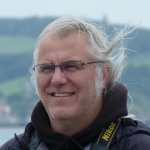
Robin Petch was our Yorkshire Regional Co-ordinator and has been involved with cetacean study and protection for over 25 years. Having resigned from his paid employment as a primary school headteacher, Robin is now a self-employed naturalist, small boat captain, and public speaker. When he is not working directly for Sea Watch he is usually either taking people on wildlife and whale watching boat trips from Whitby or giving lectures and leading deck watches on cruise ships around the world. He is passionate about cetaceans and marine conservation and his leisure time is generally spent on something related! You can learn more about Robin’s activities, or book him for a talk, on his website. Robin has become Sea Watch’s first Ambassador and serves on its editorial committee.
External Consultants
Dr Pia Anderwald comes from Switzerland, and was Sea Watch Foundation’s data analyst until 2011. After a Masters thesis from the University of Zurich on niche differentiation of cetaceans in the North Atlantic, using Sea Watch sightings database, she completed a PhD at the University of Durham on the foraging ecology and population genetics of minke whales. Pia has extensive field experience with a number of cetacean species, including minke whales, bottlenose and Risso’s dolphins, harbour porpoises, and in conducting behavioural studies, photo-identification and line transect surveys. Pia is currently employed as research analyst for the Swiss National Park but remains a consultant for Sea Watch, also managing the Sea Watch Risso’s dolphin photo-ID catalogue.
Sea Watch Trustees
Mick Baines was Sea Watch Foundation’s Database Manager from 2002 to 2011. He also worked on the database’s structure refinement, error checking and extraction procedures. Mick has been researching and monitoring marine mammals in Wales for over a decade, during which time he functioned as Sea Watch’s Welsh co-ordinator, collating sightings records and producing the Welsh newsletter. In addition to his work on the bottlenose dolphins and harbour porpoises found around the UK, Mick has carried out surveys of the grey seal population in Wales and breeding seabirds following the Sea Empress oil spill. Mick now works as a consultant for Sea Watch between spells at sea around the world, working professionally as a Marine Mammal Observer.
Katie Baker joined Sea Watch Foundation in April 2022 as the Communication & Outreach Officer. Katie’s passion for the marine sector stems from special coastal memories, especially during her internship with the Bottlenose Dolphin Research Institute in northern Spain, where she saw dolphins, fin, and blue whales.
After leaving SWF, Katie completed her MSc in International Environmental Marine Consultancy at Newcastle University and worked as a recreational fish surveyor for the Angling Trust. She has since joined RPS in Edinburgh as a Graduate Consultant, contributing to the EIA for the Ossian Offshore Wind Farm project, set to be the world’s largest floating offshore wind farm.
Katie is honoured to return to SWF as a Trustee and is eager to support the charity’s growth and online presence with her marine environment expertise.
Dr. Jim Boran retired in 2021 after working for 22 years on the Researcher Development of postgraduate researchers (MPhil/PhD), postdoctoral research assistants and academics in the Faculty of Science & Engineering at the University of Manchester. This was preceded by 23 years of research in the orca in the Salish Sea (1976-1983), pilot whales in the Canary Islands (1989-1994) and Programme Coordinator for the Sea Watch Foundation (1994-1999) maintaining the National Cetacean Sightings Database. Jim hopes to return to whale research to explore how cetaceans can drive scientific understanding of complex ecosystems undergoing radical change due to climate change. He intends to do this through supporting researchers studying whales worldwide and to promote the research findings to the wider scientific community. LinkedIn ResearchGate.
George Boyer currently lives on Ynys Mon (Isle of Anglesey) where he enjoys spotting wildlife, particularly cetaceans. He worked for many years as an Internal Training Consultant within the Civil Service developing and delivering Management, Leadership and Personal Skills Training and specialising in Change Management. In 2005, George left the Civil Service and set up a Training Consultancy and served as a Non-Executive Board Director for an NHS Trust in England. Since moving to Ynys Mon in 2013, George has become more involved with marine organisations, including Sea Watch, for whom he and his wife have undertaken many landwatches and submitted sightings. George enjoys recording and photographing cetaceans and looks forward to continuing this with Sea Watch as a Trustee.
Kelly-Marie Davidson is the Senior Communications Officer at Plymouth Marine Laboratory, an independent marine research organisation and Delivery Partner of the Natural Environment Research Council. Previous employment includes a project manager at a TV production company, marketing at a regional newspaper and a junior designer at a leading graphic design agency. In 2015 KM obtained her MSc in Science Communication with Merit from the University of the West of England, focusing on science writing, stakeholder engagement best-practice and the changes in newsroom practices by science journalists since the growth of social media. As well as corporate work at PML, KM has led or been involved in publicity and knowledge exchange activities for a number of national and international marine science research programmes, such as the UK Ocean Acidification Research Programme, Marine Ecosystems Research Programme, European Project on Ocean Acidification, ShellEye, and the Global Challenges Research Fund Blue Communities programme.
Craig Miller is an IT consultant specialising in website development and infrastructure. He joined the Sea Watch Foundation after becoming involved with the Adopt a Dolphin website and helps the charity with any IT challenges that they might face.
Hannah Parkinson spent most of her working life explaining pensions and other benefits to her employees, former employees and pensioners. She has always been interested in wildlife, particularly whales, dolphins and porpoises hoping to spot them wherever she goes. She joined us for our annual Cetacean Survey Training Course in 2016 and has since returned to New Quay in 2017 and 2019 to help out at Sea Watch. She also travelled up to John O’Groats for Orca Watch in 2019 and project managed Orca Watch in 2020, 2021 and 2022. She has also helped to edit and layout our Sea Watcher magazine and the monthly bulletins over the last year. Hannah looks forward to helping to further support Sea Watch as a Trustee.
Prof. Graham Pierce works at Instituto de Investigaciones Marinas, a Spanish government marine research institute in Vigo, Spain, where he is currently head of the Department of Ecology and Marine Resources. He was previously based at the University of Aberdeen for 35 years, latterly as a Professor at the University´s Oceanlab. His research is mainly in marine biology and ecology, and he has published over 260 scientific papers on topics including squid abundance, PCB bioaccumulation in marine animals, abundance of nematode parasites in marine fish and fishers´ perceptions of conservation measures. He has worked on marine mammal diet, life history, habitat use and conservation for over 30 years, including long-standing collaborations with the Scottish Marine Animal Stranding Scheme and the Spanish NGO CEMMA, who monitor strandings in Galicia. He is a member and former co-chair of the ICES Working Group on Marine Mammal Ecology, a former council member of the European Cetacean Society, a member of the International Whaling Commission´s Scientific Committee and has also contributed to the work of ASCOBANS.
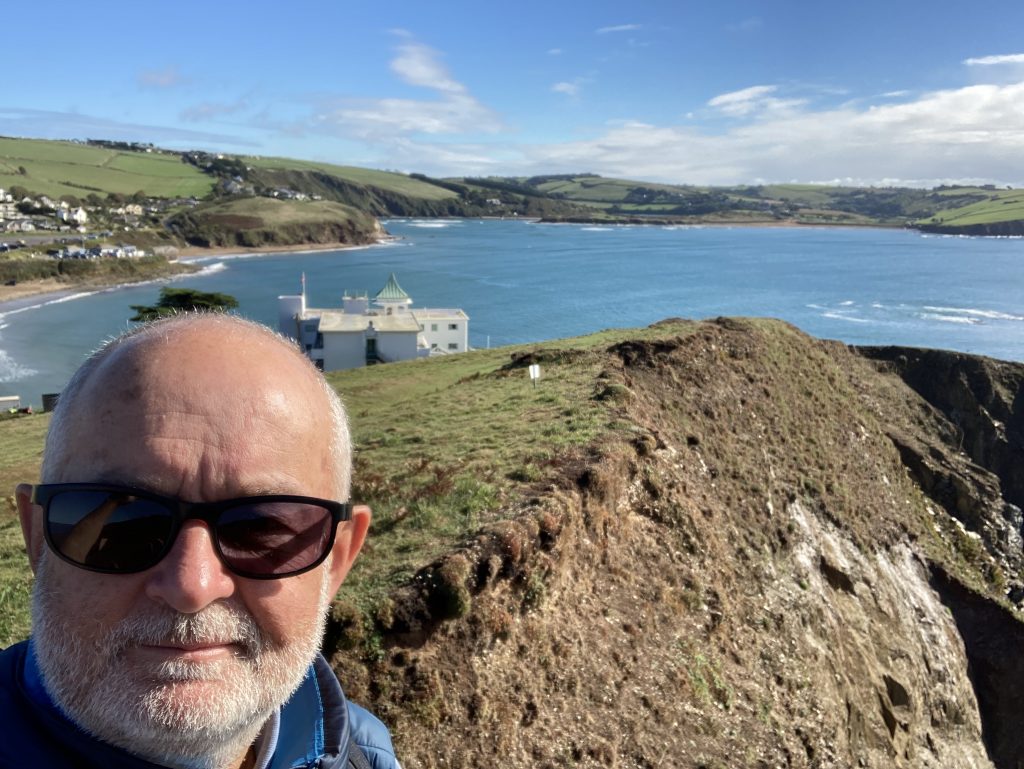
Jamie Smith has been supporting Sea Watch in the background as Treasurer since 2018. He joined the Board as a Trustee in 2023 while continuing to manage the charity’s finances. Jamie has been in finance his entire professional life, with a career in the world of corporate treasury and finance in roles across a range of global multinational companies finally with Smiths Group, the technology company. Since retirement he has been active in the charity sector and has helped four charities with their finances. Currently, apart from his role with Sea Watch, he is also Treasurer and Trustee of Aerobility, the disabled flying charity. The deep blue sea and marine conservation have always been important to Jamie and he has been a keen sailor in both dinghies and yachts for many years in the Solent and beyond – currently he sails in a wooden racing boat partnership in the simply beautiful Chichester Harbour. He also enjoys road cycling.
Colin Speedie Colin Speedie is a partner at Wave Action an environmental and yacht construction consultancy. Wave Action also manage the WiSe Scheme, Britain’s marine ecotourism training and accreditation project, a product of Colin’s many years at sea working as a yacht skipper and researcher leading cetacean and basking shark projects around the UK. Colin has been proud to be part of the Sea Watch family since its inception, as a co-ordinator in south-west England, latterly as a trustee. He lives for part or each year in Cornwall and the other part aboard an aluminium yacht somewhere in the North Atlantic with his wife Louise.
Prof. John Turner is Head of the School of Ocean Sciences, and Dean of Postgraduate Research at Bangor University. John has a degree in Botany and Zoology from the University of Bristol a doctorate in marine symbiosis from University of Oxford (St John’s College). He moved to a NERC funded postdoctoral position at Bangor University in 1985 to investigate fish behaviour and ecology before taking up lectureship in School of Ocean Sciences in Marine Biology. John developed and led the international MSc in Marine Environmental Protection for 22 years, and has over 30 years of experience in a wide range of projects involving coastal habitat survey, Marine Protected Areas, Environmental Impact Assessment), and Integrated Coastal Zone in a wide range of countries and contexts. He held a visiting lectureship at the University of Mauritius in the 1990s. His research has focused on coral reefs of the UK Overseas Territories but not exclusively, and research strategy is driven by the need to protect marine environments largely through the establishment and monitoring of Marine Protected Areas, or use of tools such as Environmental Impact Assessment and Coastal Zone Management, often to comply with the major conventions (e.g. Convention on Biological Diversity CBD, Convention on Migratory Species CMS, Convention on Trade in Endangered Species CITES, RAMSAR Convention on wetlands, and EU Habitats Directive). Research is developed in partnership (e.g. British Indian Ocean Territory Government Section of Foreign and Commonwealth Office; Cayman Islands Government; Seychelles Island Foundation; The Nature Conservancy, USA) and through liaison with stakeholder organisations (e.g. UK Overseas Territories Conservation Forum, BIOT Scientific Advisory Panel, Chagos Conservation Trust, Sea Watch Foundation, UNESCO, UNDP-GEF)) and implemented through practical research involving scientific diving operations, training, stakeholder consultations and outreach initiatives, often including placement of Project Support Officers to build capacity within organisations. Recent major funding for his research comes from DEFRA, Darwin Initiative, and Bertarelli Foundation.
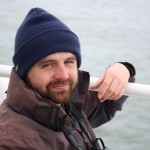
Dr James Waggitt is a lecturer in Marine Biology at the School Of Ocean Sciences, Bangor University. After completing a BSc and MRes at Plymouth University in 2009 and 2010, respectively, James completed a PhD at the University Of Aberdeen in 2015. His research focuses on cetaceans and seabirds, in particular the environmental and behavioural processes influencing their distribution in time and space. This ranges over numerous scales – including an understanding of animals’ movements and behaviours in coastal environments, to the production of species distribution maps across the North-East Atlantic. James has experience in observational surveys, statistical modelling and multi-disciplinary science.

